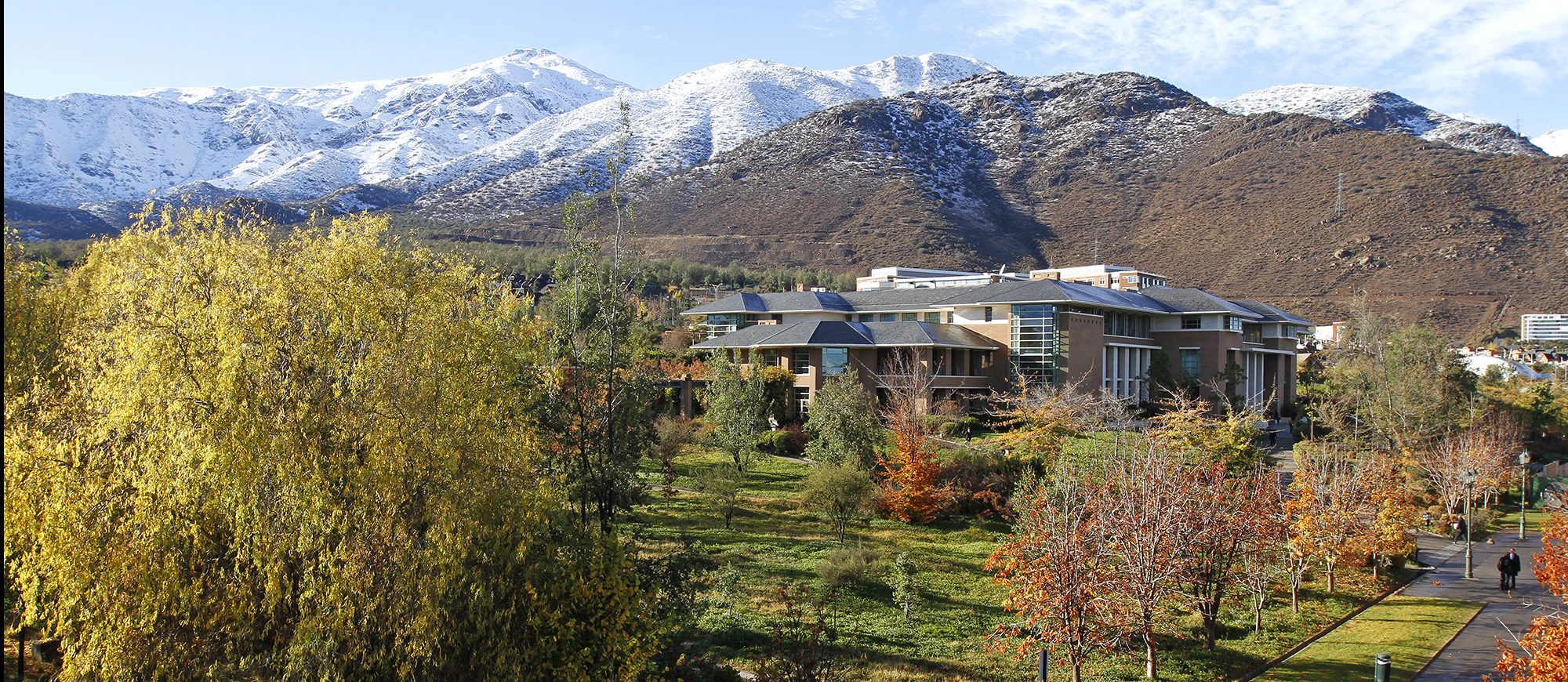
Universidad de los Andes was founded in 1989 in Santiago de Chile, by a group of academics and professionals who proposed the establishment of a higher education institution with the specific purpose elaborating an organic and universal synthesis of human culture, that integrates diverse fields in the radical unity of the truth, enlightened and invigorated by the Catholic faith.
Mission
Universidad de los Andes is an institution that seeks to deepen knowledge in all areas and contribute to the integral education of its students. It encourages academic dialog, work well done and the eagerness to serve society. The University strives to radiate a way of life coherent with the teachings of the Catholic Church.
Vision
Universidad de los Andes aims to be a center of excellence, characterized by its openness to the cultural and moral challenges of society, and its desire to respond to them with innovative solutions. Faculty, alumni and students will be pivotal actors in the engagement of the University with society.
Statement of Principles of Universidad de los Andes.
This brief document sets out the principles that inspire our university and our community. The “Statement of Principles of the Universidad de los Andes” offers a guide to the work of those who are part of the University and are serving its students and Chilean society.
Truth is at the service of mankind. Scholars seek to reach the truth through rigorous scientific work and free interdisciplinary dialogue, accepting the principle that a postulate is not imposed, it is proposed. Openness to truth expresses a positive attitude of constant renewal and deepening of knowledge.
Commitment to truth requires intellectual honesty, independence of judgment, and the duty to communicate it to society. It also implies a sense of coherence, a clear consistency between shared ideas and personal testimony.
Human science and the Christian faith are complementary areas of knowledge that originate from God. Science and faith never oppose each other, there is a necessary correlation between them for their refinement and reciprocal regeneration. Theological knowledge is fundamental in developing science measured for human dignity.
Human dignity is present in every aspect of academic studies, and the decisions of the University. We promote cordial and solicitous treatment for all people, taking care of the way things are done. The spaces and facilities portray a taste for aesthetics, decorum, neatness, and care as a means for education and improvement of those who study and work at the University.
Human dignity entails respect for personal freedom and awareness of responsibility. We encourage among all members the full respect for personal freedom and their opinions. We also defend the freedom of our scholars to develop an academic project according to a common ethos, shared freely.
The University is at the service of society. Our professors, students and administrators seek to serve others through work well done combined with multiple social and welfare initiatives focused on helping the most vulnerable people. Being serviceable implies dedication in working as a team, avoiding any desire for boastfulness.
We strive to live according to a culture of work well done as an expression of good service and a way of contributing to the progress of society. Professors should teach and conduct their research with scientific competence and students should study in the same way. The full completion of duty requires consistency and thoroughness, an adequate planning of the growth of the University and a government style based on concrete and measurable results.
Each member of the University seeks to faithfully live the statement of principles, collaborating effectively and loyally with everyone, beyond the natural differences and problems. There is an atmosphere of confidence at the University, where the unity of common principles and values prevails.
The University expects to transcend for centuries. Therefore, our work is focused on long-term goals. We try to make stable and sustainable academic and architectural decisions over time. Growth is the result of mature decisions and of the availability of people and adequate resources to ensure the identity of the educational project.
UANDES and Opus Dei
UANDES is a university inspired by the Christian faith, promoted by a group of academics and professionals motivated by the teachings of Saint Josemaría, founder of Opus Dei.
As a University, its mission is to search for truth by means of research and teaching. As stated in the agreement between the University and the Prelature, Opus Dei provides Christian orientation offering spiritual support to all members of the educational community who freely desire it.
The Prelate of the Opus Dei, is also Honorary Rector of the University, a role that does not imply governance or management responsibilities. This is an appointment that transcends the person. Bishop Álvaro del Portillo was the first Honorary Rector, followed by Monsignor Javier Echevarría and, currently Monsignor Fernando Ocáriz.
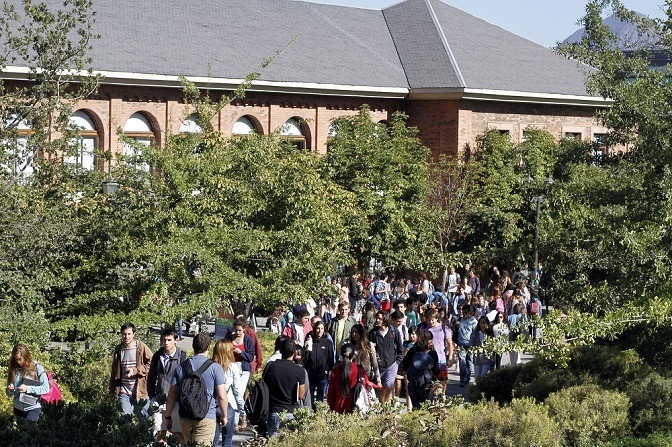
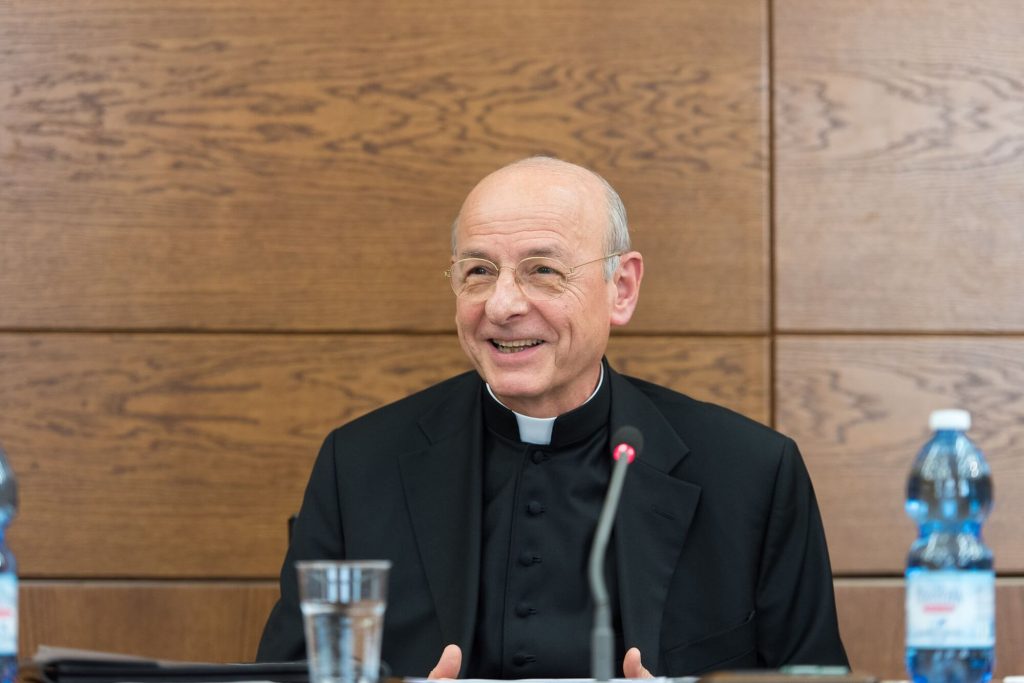
Opus Dei is an institution of the Catholic Church, whose mission is to help find Christ at work, in the family and in all the circumstances of ordinary life. It promotes the universal call to holiness and apostolate, among all kinds of people.
It also encourages laity to improve society, for example through works of corporate apostolate. These are non-profit initiatives of a civil nature, and with an apostolic and service purpose.
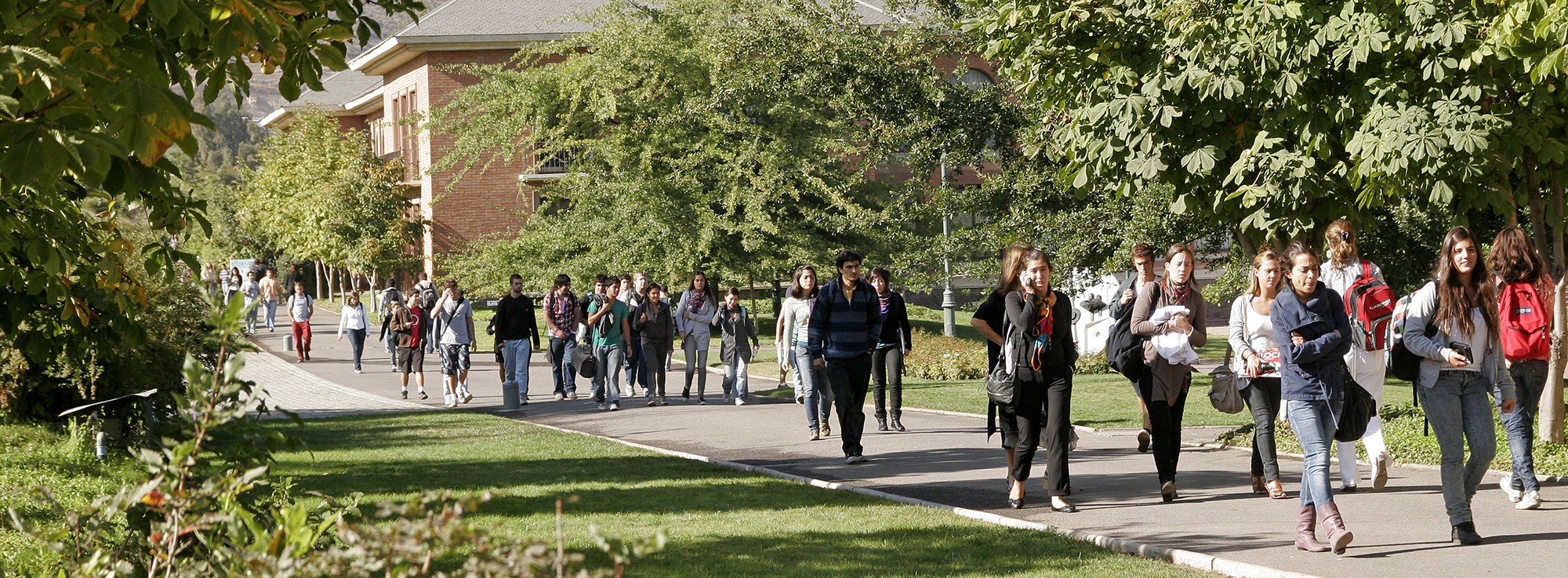
Campus
The University campus is a geographic space specially designed to support our academic model . The architectural design seeks to be the material concretion of our mission and vision, reflecting the concept of a complex university, centered on the person and at the service of the country.
The definition of a single campus arises from the need to materially ensure the integration of diverse knowledge and interdisciplinary dialogue. The cultured coexistence promoted by the University among our scholars and students, requires a common space to facilitate personal contact and openness to other disciplines. Also, territorial unity effectively favors the “open-door” policy of authorities and the participation of the university community in common activities.
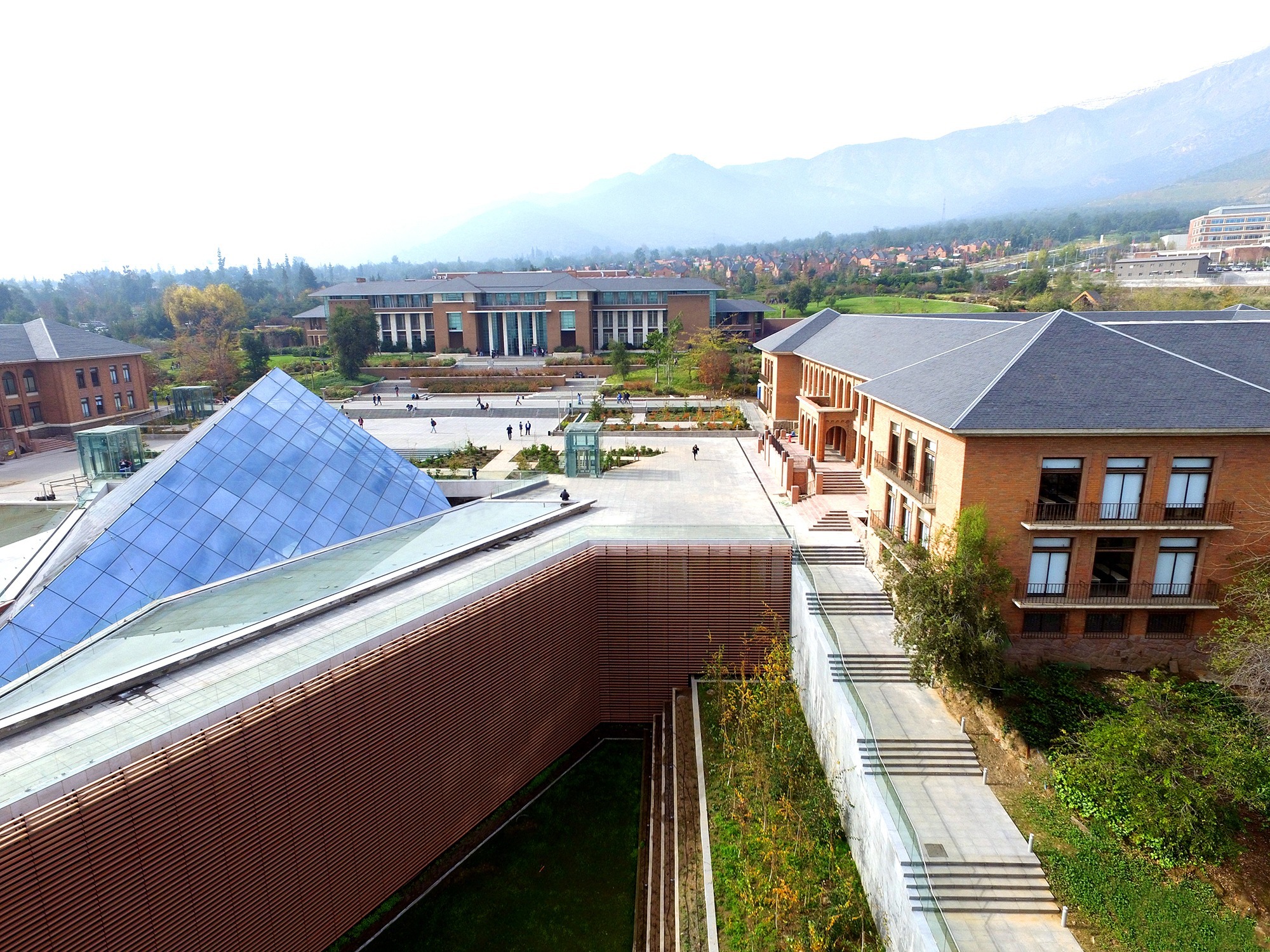
Located at the foot of the Andes mountains, large green areas with teaching and research spaces, faculty and university life, sports and recreation, culture and spiritual assistance, coexist in its 52 hectares. The infrastructure and disposition of the campus seeks to promote a serene study area, a natural environment favoring intellectual creativity and beauty with a pedagogical sense, since the relevance of aesthetics as an engine for imagination has a vital influence on the students’ learning process. For this, the architecture of our University keeps the horizon’s line clear, evoking for students and scholars, the need for a transcendent formation linked to the city and the country. This impetus to move towards the city is also reflected in the arrow that forms between its main buildings in the direction of the valley and it is where the Plaza Central (Central Square) is located and that represents the “Agora” or meeting point.
The architectural definitions of the University consider interior spaces favoring personalized treatment of students and the use of new teaching methodologies, along with outdoor meeting points open to the city. Proof of this, for example, is the existence of silent reading rooms, care and of the facilities, landscaped gardens and the sustainable and ecological development of the Master Plan, which also benefits the community.
The campus has eight academic buildings: Central, Humanities, Sciences, Library, El Reloj, Mecano, ESE Business School and the complex formed by the Center for Biomedical Research and the Teaching and Simulation Unit (CIB-UDS), which total more than 69,000 square meters built. Here you can find classrooms, laboratories, the library, offices and meeting rooms, as well as auditoriums, two Aula Magna, a Hall of Honor and an amphitheater. In the latter it is possible to develop the most varied activities of academic and cultural extension. There is also the Espacio VU, where several co-curricular workshops can be developed.
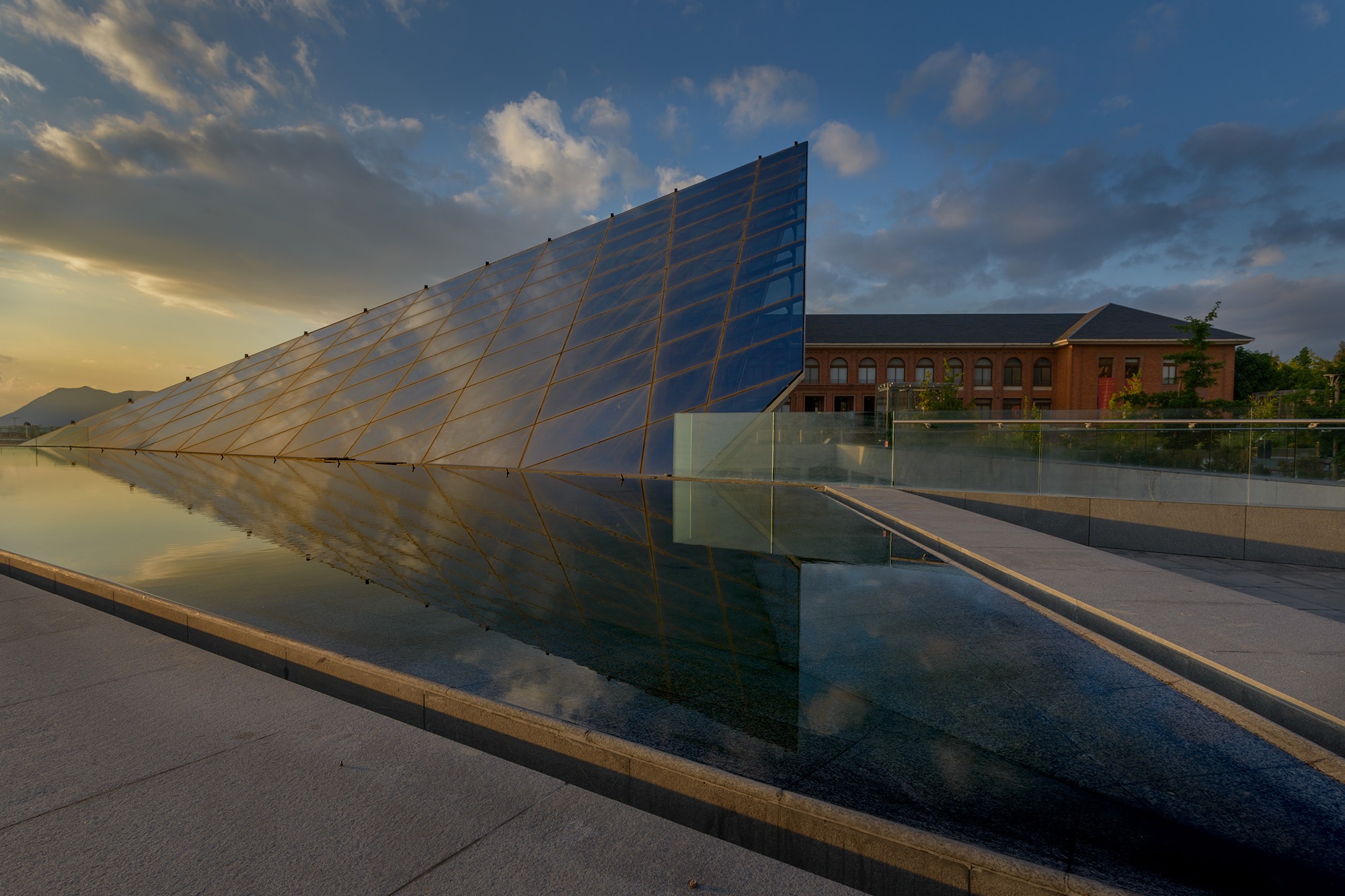
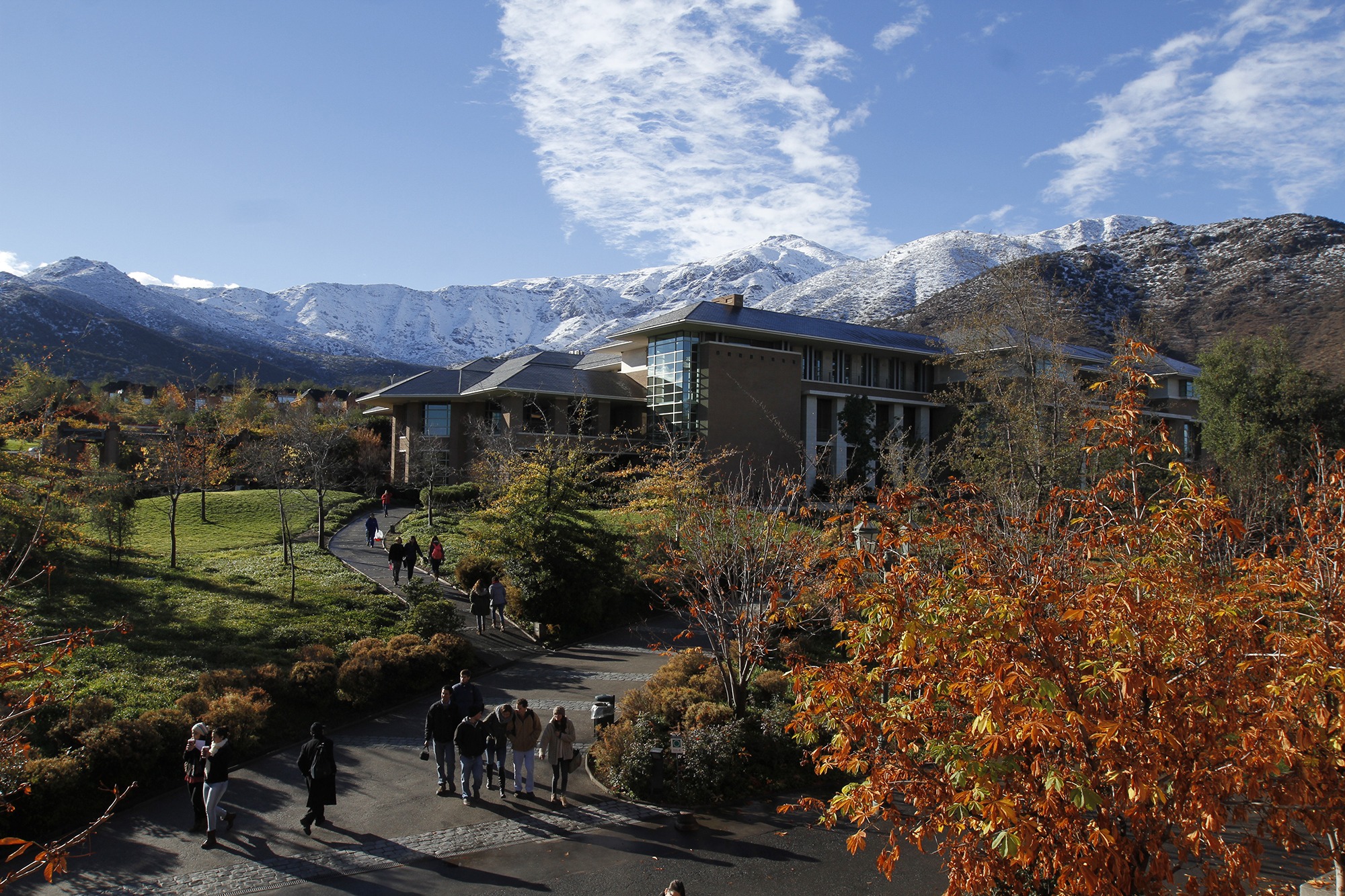
An integral cultivation of young personalities, present in the mission of the University, has orientated the disposition of a sports sector, that includes a covered gym for sports and physical training with fitness equipment, a natural grass regulation field, for soccer, rugby and hockey, two synthetic grass fields for Futbolito, one hard surface tennis court and one climbing wall, in addition to dressing rooms.
Student leisure time can be spent in the Sala Cero, the Los Ciruelos courtyard, the Quincho UANDES, the Plaza Central and the surroundings of the Library, besides cafeterias and coffee shops, among others. The Master Plan considers the future construction of a sports complex, university residences and buildings to be used by academic units, among others.
UANDES also owns two health centers, the Centro de Salud San Bernardo (San Bernando Health Center) was built in 1999, next to the parish Hospital of that same commune, whose purpose is to satisfy educational needs of health-related careers and offer coverage in various medical, dental and mental health specialties to the beneficiaries of the public health system in the area. In 4,555 square meters built, as of 2015 it recorded an average of 100,000 annual attentions, which represents about 30% of the total population of the commune.
The first of three stages of the Clinica Universidad de los Andes, located in the south-east sector of the University campus, began operating in May 2014 with the challenge of providing the country a teaching-assistance center that is at the forefront of scientific advances offering society comprehensive medical services, with a deep respect for human dignity. In 56,000 square meters it houses more than 100 hospital beds, eight surgical pavilions, four maternity wards and 12 emergency room cubicles, in addition to adult, pediatric and neonatology Intensive Care Units (ICU); Clinical Laboratory; Blood bank and Vaccination center, among other services.